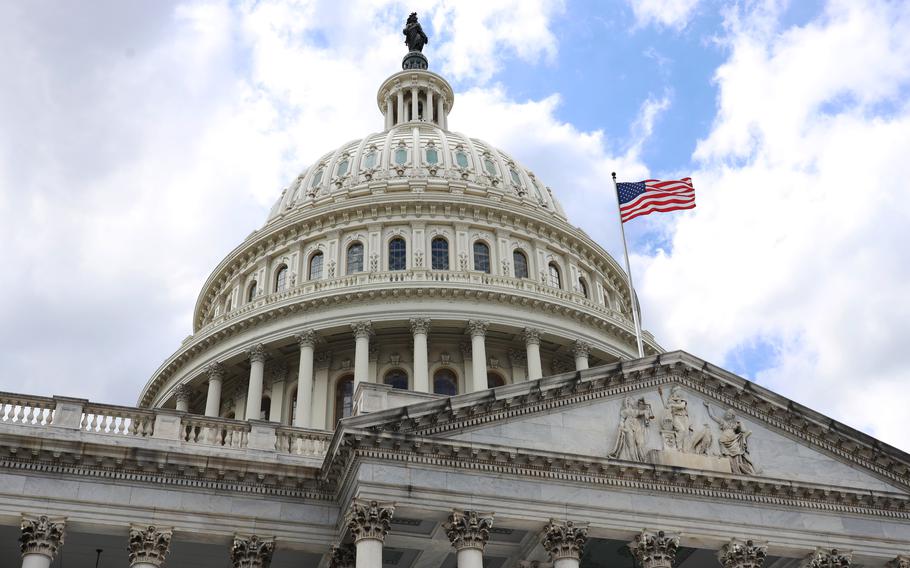
House lawmakers overwhelmingly passed a sweeping package of measures to expand and strengthen private-sector medical care outside the VA. (Desmond Andrews/U.S. Marine Corps)
WASHINGTON — The House passed a sweeping package of measures Monday to expand and strengthen private-sector medical care outside the Department of Veterans Affairs.
The package will increase coverage for in-home care of disabled and aging veterans, fund mental health counseling for home-based caregivers and better integrate information on private clinicians in the VA’s computer system to facilitate appointments and sharing patient records.
The measures, which have not been taken up by the Senate, also extend a training program that prepares veterans for technology jobs and increases transportation assistance for homeless veterans headed to appointments with doctors or to job interviews.
The omnibus package — known as the Sen. Elizabeth Dole 21st Century Veterans Healthcare and Benefits Improvement Act —was approved 389-9, with support fairly even along party lines.
Nine Republican lawmakers cast the dissenting votes. Opposing the package were Reps. Jeff Duncan of South Carolina, Bob Good of Virginia, Paul Gosar of Arizona, Matt Rosendale of Montana, Keith Self of Texas, Joshua Brecheen of Oklahoma, Eli Crane of Arizona, Ralph Norman of South Carolina and Chip Roy of Texas.
“This bill will change the landscape for elderly veterans and give them a choice about where they live out their sunset years,” Rep. Mike Bost, R-Ill, chairman of the House Veterans Affairs’ Committee, said prior to the vote.
Rep. Mark Takano, D-Calif., ranking member of the House Veterans Affairs’ Committee, described the final package as a compromise negotiated last week to increase community-based health care while preserving VA health services.
“I’m glad we’ve gotten here and put our veterans and the people first. The American people want to see more of this happening,” Takano said.
The legislation increases the reimbursement rate for caregivers who help aging and disabled veterans continue to live at home as an alternative to nursing homes.
It allows for 100% coverage for the home-based care, which is on par with the rate that VA nursing homes receive. Current law allows for 65% coverage of the cost for in-home care.
The legislation also enables the families of veterans who chose to die at home to receive burial and funeral allowances that currently are limited to the families of veterans who died at VA facilities.
The legislation also seeks to cover transportation costs via ambulance to the nearest non-VA hospital in the event of an emergency. Veterans in rural areas often have quicker access to private community hospitals that are not part of the VA health system, supporters said.
The package contains measures for improving the VA’s mobile mammography and breast-screening services for veterans who may live in rural areas and not have easy access to a VA hospital or clinic.
It also will require VA medical centers to ensure that veterans are made aware of private health care services in their own communities when similar care is not available in a timely manner at VA hospitals and clinics.
Another provision mandates training for all new VA employees on how to report concerns about wrongdoing to the VA Office of Inspector General.
The legislation also will require the VA to audit in-house police forces and report on security weaknesses at its hospitals and clinics.